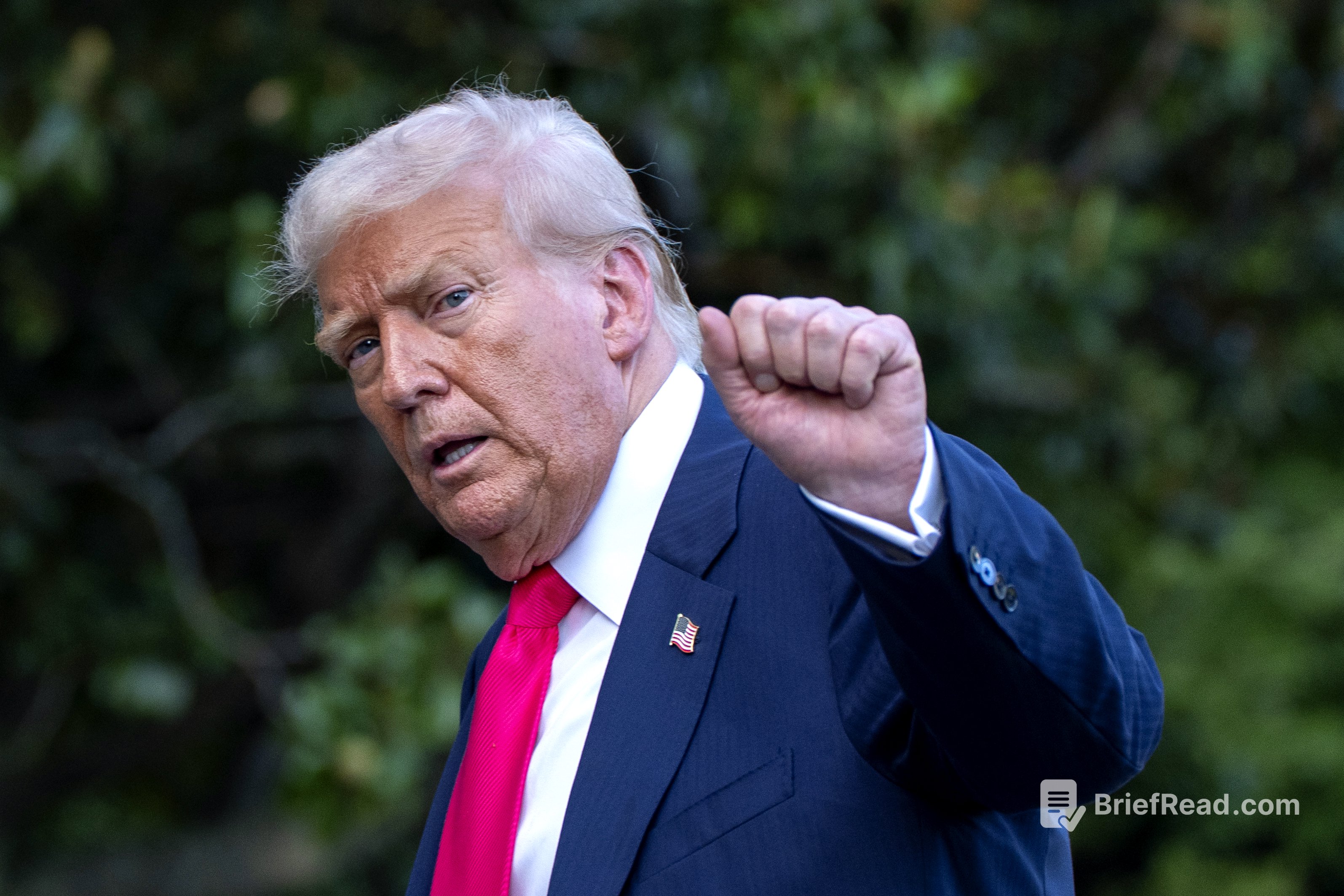TLDR;
This episode of Sansad TV's "Perspective" discusses Prime Minister Narendra Modi's historic visit to Namibia, the first by an Indian leader in 27 years. The visit underscored the enduring friendship between India and Namibia, rooted in shared democratic values and mutual respect. Key takeaways include:
- The Prime Minister was conferred Namibia's highest civilian honor, recognizing India's importance to the nation.
- Discussions focused on deepening bilateral cooperation, including Namibia's role in the cheetah conservation project.
- Two MOUs were signed to boost the health sector and entrepreneurship.
- Emphasis was placed on aligning India's Vision 2047 with Africa's Agenda 2063 for inclusive growth.
Introduction [0:08]
The program introduces Prime Minister Narendra Modi's visit to Namibia, highlighting that he is the first Indian leader to receive the country's highest civilian honor, The honor of the most ancient Walwitchia Miraabilis. The award symbolizes the strong relationship between India and Namibia, built on democratic values and mutual respect. The discussions between the two countries aimed to strengthen bilateral cooperation, with Namibia playing a crucial role in the cheetah conservation project in India. Two memorandums of understanding were signed, focusing on health and entrepreneurship.
Historical Context and Strategic Importance [2:59]
India and Namibia share a historical relationship dating back to India's support for Namibia's fight against the apartheid regime. India recognized SWAPO and supported Sam Nujoma. Namibia is strategically located between South Africa and Angola, countries with which India has close ties. The Prime Minister's visit addresses previous complaints about a lack of high-level political engagement from India. This visit is important for India's rising influence and its need to establish strong relationships for growth.
Significance of the Civilian Honor and Global South [6:20]
The civilian honor conferred on Prime Minister Modi symbolizes the deepening ties and mutual respect between India and Namibia. It recognizes India's significance to Namibia. The relationship between India and Namibia is important in the modern context, particularly concerning the Global South. Prime Minister Modi has been focusing on the Global South in forums like BRICS and G20. Namibia was a symbol of India's stand for the anti-apartheid movement, with India supporting ANC and PAC through Namibia.
Impact of MOUs on Health and Entrepreneurship [10:49]
The MOUs signed on health and entrepreneurship are very important. India has been providing support to Namibia during the COVID-19 pandemic by sending vaccines. India has become a factory of pharmaceuticals and was among the first countries to develop a vaccine at a reasonable price. Healthcare, cancer care, and entrepreneurship development are crucial for Namibia to become an effective development partner. Namibians are ambitious and want to develop their industrial sector and process their own minerals.
Next Steps for Sustaining Momentum [12:54]
Following the Prime Minister's visit, it is important to focus on critical mineral resources, such as rare earth elements, in which Namibia is rich. India's trade with Africa is largely confined to 10 countries, and there is a need to include countries like Namibia, which have tremendous potential in critical minerals and resources. India's vision to become a "Viksit Bharat" by 2047 aligns with the African Union's Agenda 2063, and cooperation between democratic countries like India and Namibia can help promote Namibia's agenda.
Boosting Economic and Private Sector Engagement [15:50]
Despite political goodwill, trade and commercial relations between India and Namibia are modest. There is tremendous scope to expand trade in value terms, especially in precious metals and resources. With China controlling the supply of these minerals, India needs to find new resources and countries like Namibia for direct sourcing. The Prime Minister's visit adds to the Global South initiative and helps secure resources that India needs.
Aligning Development Projects with Agenda 2063 [17:22]
India needs to develop a synergy where both countries can mutually benefit from cooperation projects. Focus should be on strengthening trade mechanisms and the blue economy, given Namibia's strong maritime presence. Agriculture, processing industries, and establishing an IIT in Namibia are other potential areas of cooperation. The focus should be on finding common interests rather than exclusive ones.
UPI Technology and Regional Trade Dynamics [21:11]
Namibia is the first country to enter a licensing agreement to adopt UPI technology, reflecting India's willingness to share its success stories. India needs to work strategically with the Africa Free Trade Zone, where the headquarter is located in Ghana. While South Africa is a friendly country, it also has a competitive relationship with India in Southern Africa, where it has a monopoly on the supply of manufactured and household goods.
Wildlife Conservation and People-to-People Diplomacy [24:22]
Wildlife conservation, beyond the cheetah project, can be a long-term area of joint leadership between India and Namibia. African countries integrate the human population into their wildlife conservation strategies, offering lessons for India. There is great scope for cooperation in creating a friendly environment where people and animals can coexist. The Prime Minister emphasized the importance of people in both countries as the strongest pillar of the relationship.
Strengthening India-Namibia Ties [27:19]
To strengthen ties, India needs to increase slots for ITEC, increase fellowships for Namibian students, and promote multi-stakeholder engagement, including civil society. Both countries have uninterrupted democracy since independence, and promoting cultural and youth relations through exchange visits and establishing a cultural center can help. India was once highly respected for its partnership in independence movements and its focus on human dignity. It is important to make Namibia a development partner and encourage their aspirations to regain the space that is being lost to competitors.
Conclusion [29:52]
The Prime Minister's visit to Namibia, the first at the prime ministerial level in 27 years, has opened a new chapter in their historic ties. The road ahead is rich with potential for cooperation, both for the people and for the larger promise of a truly global south future. The roadmap has been laid down, and implementation needs to be done to deepen India-Namibia ties and, in the larger picture, India-Africa ties.









